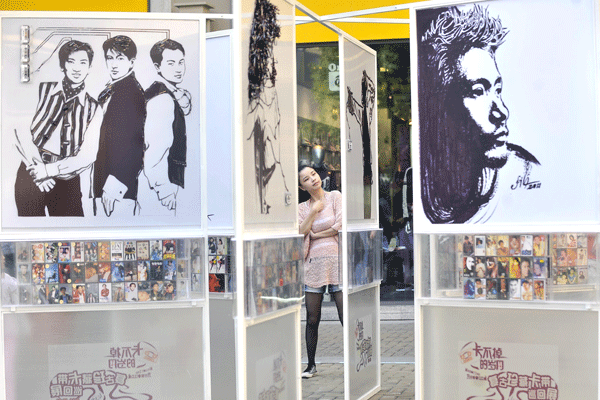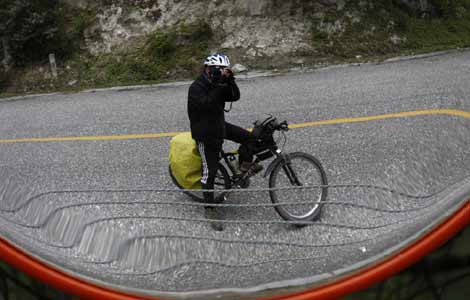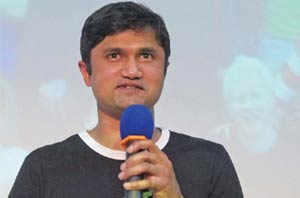Capturing sounds of yesterday
Updated: 2011-10-09 10:39
By Shi Yingying (China Daily)
|
|||||||||
|
 |
|
For China's post '70s and '80s generation, the initial memory of music is connected with black cassette tapes. Provided to China Daily |
Shanghai
An era came to the end for post '70s and '80s in China when Sony announced it would stop producing Walkman audio cassettes last year. With little memory of the long-playing record, that generation's initial memory of music was connected with this little black cassette tape.
With over 2,500 of them, a special exhibition held inside a shopping mall is full of nostalgia. At one corner of the mall, a 35-year-old father surnamed Lou is teaching his 6-year-old boy Lou Zeyu how to use the old-fashioned cassette player.
"He has never seen a cassette tape or its player before," says Lou. "They're so exposed to the digital. I especially brought him here to see what was my way of enjoying music before.
"I refer it as 'the memory of nine yuan and 80 cents', as it cost that much to get a cassette tape when I was my son's age," says Lou. "Without any prejudice or discrimination, I simply think because of digital devices' convenience, the excitement and fun of getting the music have been lost. Now people can download songs from the Internet without paying a penny - when I was little, I had to save pocket money for weeks for one tape."
Twenty-nine-year-old Jin Mingchen is a super fan of collecting vintage cassette tapes.
 |
"I brought 100 out of my 2,000 (tape) collection to this exhibition," says Jin. "There's a kind of consistency involved in the medium of cassette. If you choose tape rathen than CD, then you have to listen to the whole album from the first song to the last one. Unlike with a CD, you can't skip songs."
Taiwan record producer and singer Zhou Zhiping, who went through the eras of record, cassette and CD, couldn't agree more. He says because cassette tapes have both A and B sides, producers needed to put in extra efforts to attract the audience.
"We need to grab their desire to turn it over manually, meaning the last song of Side A has to be sexy, otherwise people won't finish it," he says.
"Apart from that, a vocal is icy-cold when you record it digitally. It was just warmer in the cassette tape."











